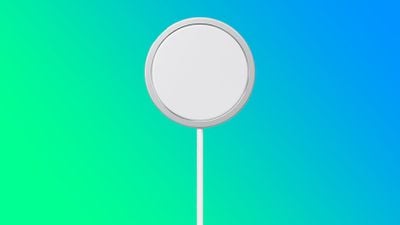Third-party accessory makers just started releasing next-generation 15W Qi2 charging devices in the last few months, but Apple raised the wireless charging speed bar again with the iPhone 16 models.

With Apple's newly updated MagSafe charger and a 30W power adapter, the iPhone 16 models can charge at up to 25W wirelessly over MagSafe, which is 10W faster than Qi2.
Qi2 is great because it's an open standard that doesn't require accessory makers to pay Apple to license its technology, but companies that want to offer the fastest wireless charging speeds for the new iPhone 16 models will once again need to turn to MagSafe.
When MagSafe was first introduced in the iPhone 12, it was a proprietary Apple charging standard that accessory makers could license. It was able to charge iPhones at up to 15W. The alternative was Qi charging, which was limited to 7.5W, but it didn't require using Apple technology.
Qi2 brought 15W charging speeds that were on par with MagSafe, giving us charging speed parity for a short time. Accessory makers could design magnetic chargers that offered 15W charging without paying Apple a fee. That's over now, and we're back in the exact same situation we had when it was original MagSafe vs. original Qi.
Qi2 chargers will only charge iPhone 16 models at up to 15W, and 25W charging will be limited to MagSafe. This time around, it's a wider difference because 25W charging is fast charging and can provide up to 50 percent power in 30 minutes.
Apple released a new version of the MagSafe Charger alongside the iPhone 16 models, so it doesn't look like existing MagSafe chargers are going to provide 25W. Apple says the 25W charging requires a "new" MagSafe charger, which means accessory makers and customers alike will need new charging accessories to get the updated MagSafe speeds. Note that the new MagSafe charger still charges older iPhones at 15W.
While it's just the iPhone 16 models that support 25W charging now, this is a new baseline that will be added to future iPhones, and 15W Qi2 charging will soon be antiquated.























